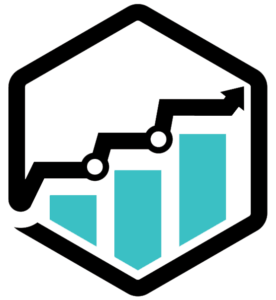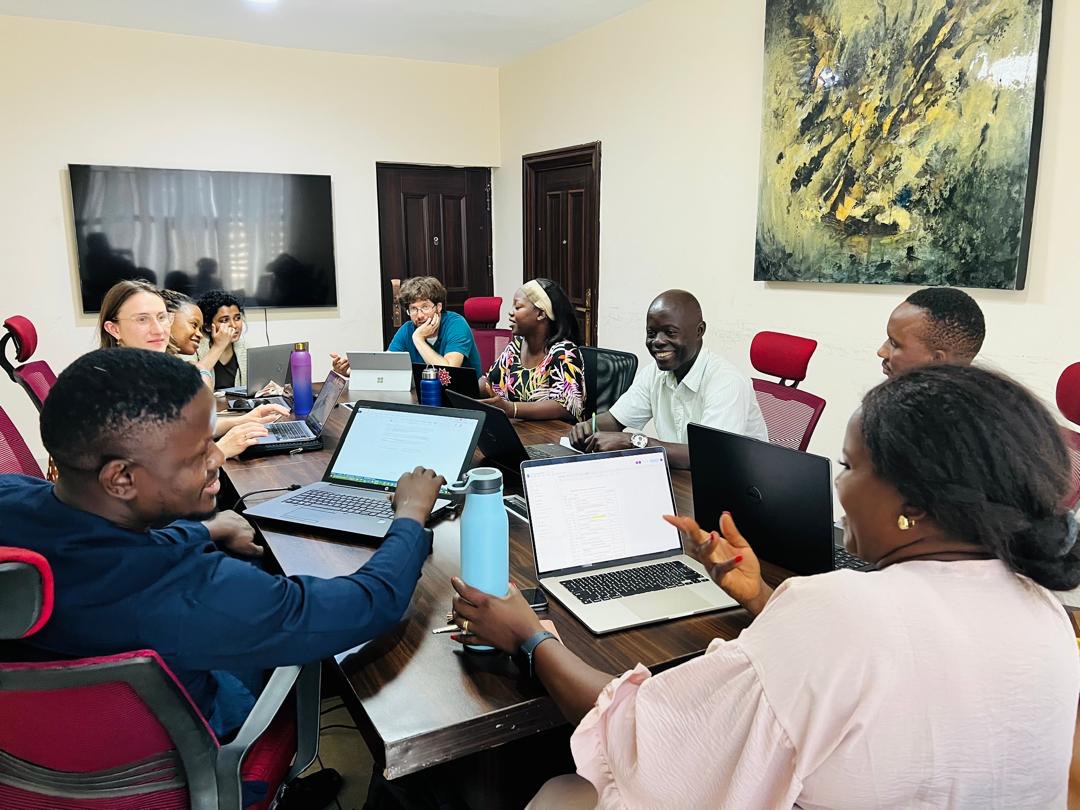We recently led data collection efforts in Sierra Leone and Guinea for the International Security and Development Center and the International Initiative for Impact Evaluation. In this blog post, we share insights from the epic and frequently perilous journeys of our field teams in their quest for quality data. We also discuss how we employed technology and innovative thinking to deliver high-quality data in a timely and cost-efficient manner.
The Bush Wahala data collection project showcases our commitment to using innovation to drive impactful change. This project, conducted in extremely challenging terrains, utilized cutting-edge technology and innovative thinking to facilitate high-quality and timely data collection and support sustainable livelihoods even in the most remote and inaccessible areas.
Focus Areas and Challenges
The Bush Wahala Project was implemented in Sulima and Mongo chiefdoms in Falaba District, Sierra Leone, and in bordering communities in Faranah Prefecture, southern Guinea. These communities are rich in cultural diversity and agricultural potential but have endured a long history of agrarian conflicts that sometimes led to extreme violence.
These regions are also known for their breathtaking landscapes, rugged roads, and limited access to basic amenities, including electricity and internet connectivity. Despite these challenges, our team was determined to collect high-quality data that would inform interventions to promote peace and sustainable livelihoods for cattle herders and crop farmers.
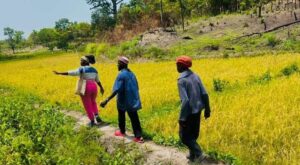
Technology and Innovations
To achieve this, we equipped our enumerators with state-of-the-art technology including Samsung Galaxy Tabs, Solar Panels, and portable solar generators. These tools were essential in ensuring that our data collection effort was efficient, reliable, and environmentally friendly. One of the standout features of data collection process was the use of solar technology. As Arnold Samuel, one of our enumerators, shared:
“The progressive step within Meraki Analytics as we were sent to the field with a Samsung Galaxy Tab and backup solar generator for fieldwork was impressive. The durability and long-lasting battery of the tab helped me to work effectively and efficiently. The solar generator was top-notch as it served to charge all the enumerator tablets, which was a great help to all of us as most of those places where we were staying had electricity issues. The beauty of it all is that the solar generator can be recharged by the sun or electricity.”
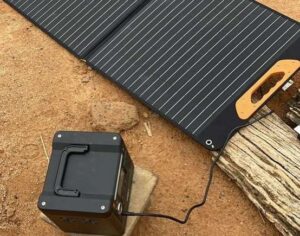
This innovation not only provided a reliable power source in areas with limited electricity but also underscored our commitment to sustainable practices. The utility of the portable solar-powered generator was most evident in communities like Simithia and Gbongbador, two remote villages with no access to electricity. Without the solar generators, enumerators would have had to travel at least thirty miles every day or two to recharge their devices. We estimate that the solar-powered generator resulted in cost savings of more than $100 per enumerator in terms of travel time saved.
Streamlining Data Collection
Traditional data collection methods often involve cumbersome paperwork and significant manual effort. By contrast, our approach leveraged digital tools to streamline the process. We used SurveyCTO for data collection, drastically reducing the need for paper. Considering that each respondent required a 16-page questionnaire and we surveyed 2,114 respondents, this shift to digital not only minimized environmental impact but also enhanced data accuracy and efficiency. Additionally, SurveyCTO’s built-in capabilities made it possible to implement the randomized economic experiments, vignettes, and conjoint analyses that were pivotal to our data collection objectives.
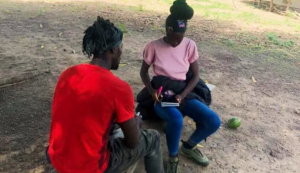
Figure 3: A field enumerator conducts an interview with a local community member, gathering insights for the project evaluation.
Mobile Money and Airtime Compensation
A key component of our data collection exercise included payment of mobile money and airtime compensation to 2,100 survey respondents for participating in two in-survey behavioral games. The major hurdle was figuring out an efficient way to make these payments. One option was to have data collectors make the payments immediately after completing the games, but that would have involved manually computing the amount—a tedious and error-prone process.
In the spirit of innovation, we reached out to Monime, a financial technology start-up that specializes in payment solutions. Even though Monime had considerable experience with business-to-business payments, making disbursements across multiple payment domains and platforms to thousands of beneficiaries required adaptations to their existing technology. In the end, the Monime technology ensured that all beneficiaries received their payments as Orange Money, Afrimoney, or airtime in a matter of minutes. We estimate that it would have required at least ten eight-hour shifts for a Meraki staff member to accomplish this manually, not to mention the enormous possibility for errors.
Training and Empowerment
Our initiative also provided training opportunities for young Sierra Leoneans and Guineans, including many young female enumerators. This empowerment through technology is a step toward greater inclusion in the tech sector. As Zainab, a first-time data collector, expressed:
“I am very new to most of these tech tools, but working with Meraki and embracing this new technology is a step in the right direction. As a first-time data collector, I must say I’m developing a new career from this. I am now intrigued and curious to learn more.”
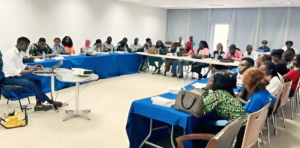
Figure 4: Enumerators receiving crucial instructions for effective data collection, ensuring accuracy and consistency in the field.
Overcoming Terrain Challenges
The project sites were not just remote—they were challenging in every sense. The terrains were tough, with steep hills, dangerous roads, and limited or non-existent infrastructure. Our enumerators spent two weeks in the northern part of Freetown, Falaba District, and another week in Faranah Prefecture, Guinea. These communities are isolated and lack basic amenities.
In Koindukura, a village in Sulima Chiefdom, we found that the community relied on a single telecenter for charging their phones. This small shop, which our enumerators nicknamed the “All-in-One Metro Supermarket,” became a hub for better internet connectivity, food, and water.
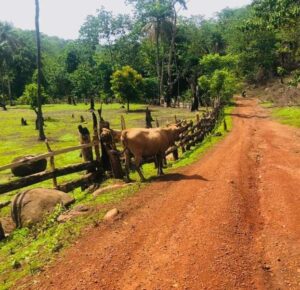
Real-Time Monitoring and Environmental Impact
To ensure the accuracy and timeliness of our data, we implemented an electronic dashboard to monitor the inflow of data in real-time. This allowed our team to track progress, identify any issues promptly, and make necessary adjustments. Using Google Maps, we efficiently navigated and located villages, ensuring that no area was left unvisited despite the challenging terrains.
By opting for digital data collection methods, we significantly reduced our carbon footprint. Traditional data collection would have required 33,824 sheets of paper for the questionnaires. The use of tablets not only minimized waste but also offered a more secure and robust data collection option. This environmentally conscious approach aligns with our broader goal of promoting sustainable data collection practices. The digital approach not only saved trees but also ensured that our work did not contribute to littering and climate change. Moreover, the risk of losing completed paper questionnaires to rain or other environmental factors was entirely mitigated, ensuring the integrity and security of our data.
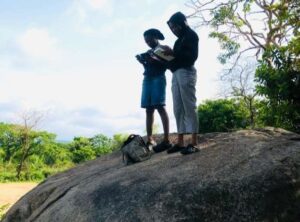
Conclusion
The successful completion of the data collection is a significant milestone for Meraki Analytics. It demonstrates the power of efficient planning, teamwork, and technology in overcoming logistical challenges and highlights the resilience, dynamism, and adaptability of our team. As we continue to innovate and push the boundaries of data collection and analysis, we remain committed to driving sustainable change and improving the lives of communities in Sierra Leone, Guinea, and beyond.
We are aware of the increasing benefits of innovative thinking and a data-driven approach to decision-making and problem-solving. We aim to become your first choice for all your research, data collection, and analytics needs. Our experience and expertise ensure that we deliver high-quality, impactful solutions tailored to the unique challenges of each project.
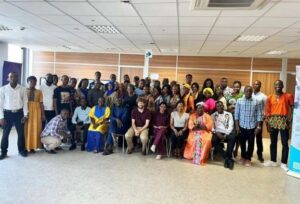
Download full pdf here.
Meraki Analytics SL
Twitter | Instagram | LinkedIn | Facebook
Contributors:
Tracy Jac-during- Author
Musa Mansaray –Graphics Design
